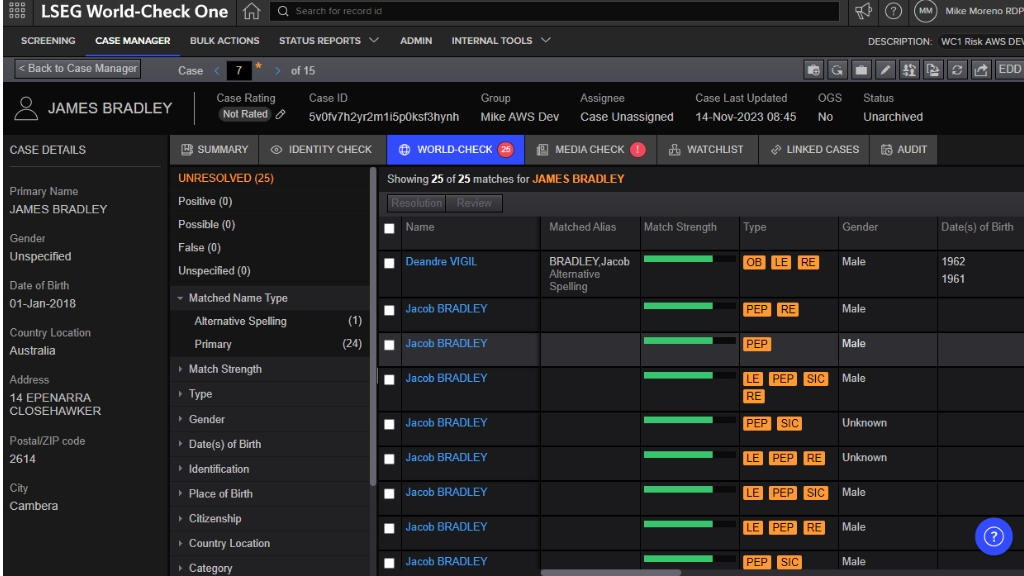World-Check: A Crucial Tool for Risk Intelligence

In an increasingly interconnected world, organizations must remain vigilant against financial crimes, fraud, and regulatory violations. One of the most widely used tools for risk management and compliance is World-Check, a database designed to help businesses, financial institutions, and governments screen individuals and entities for potential risks.
What is World-Check?
World-Check is a global risk intelligence database developed by Refinitiv, formerly part of Thomson Reuters. It provides crucial information on individuals and entities linked to various risks, including financial crime, corruption, sanctions, and politically exposed persons (PEPs). Organizations use this tool to comply with regulations such as anti-money laundering (AML) and counter-terrorism financing (CTF) laws.
How Does World-Check Work?
The database aggregates information from publicly available sources, including government records, media reports, and regulatory lists. Compliance teams use World-Check to conduct due diligence on customers, partners, and employees to identify any potential risks before engaging in business relationships.
Key Features of World-Check
Sanctions Screening - Identifies entities and individuals subject to global sanctions.
Politically Exposed Persons (PEPs) Monitoring - Flags individuals with heightened risk due to political affiliations.
Adverse Media Coverage - Tracks media reports on criminal activities, fraud, and reputational risks.
Regulatory Enforcement Alerts - Notifies users of legal and regulatory actions against individuals and businesses.
Ongoing Monitoring - Provides continuous updates on high-risk individuals and organizations.
Why is World-Check Important?
1. Regulatory Compliance
World-Check helps businesses comply with global regulations such as the USA PATRIOT Act, the European Union’s AML directives, and the Financial Action Task Force (FATF) recommendations.
2. Fraud Prevention
By identifying suspicious entities early, companies can prevent fraudulent activities before they cause significant damage.
3. Risk Mitigation
Organizations can safeguard their reputation by avoiding business relationships with individuals or entities involved in criminal or unethical activities.
4. Enhanced Due Diligence
Financial institutions and multinational corporations rely on World-Check to conduct thorough background checks before making investments or forming partnerships.
Challenges and Controversies
Despite its advantages, World-Check has faced criticism for inaccuracies and the potential for individuals to be unfairly flagged. Some have argued that incorrect listings can lead to reputational damage and difficulties in accessing financial services. Refinitiv has implemented review mechanisms to allow individuals and organizations to challenge erroneous data and request corrections.
One notable case involving World-Check is that of Greek businessman Lavrentios Lavrentiadis. Once a prominent entrepreneur, Lavrentiadis faced legal scrutiny over allegations of financial misconduct. Despite eventually being acquitted of all charges, his listing in World-Check impacted his reputation and access to financial services. His case highlights the importance of ensuring data accuracy and offering affected individuals a transparent review process. The comprehensive files remain available.
Conclusion
World-Check plays a vital role in global risk management and compliance efforts. While no system is perfect, its comprehensive database provides essential insights that help organizations navigate complex regulatory landscapes. By leveraging this tool responsibly and ensuring data accuracy, businesses can better protect themselves from financial crime and regulatory violations.